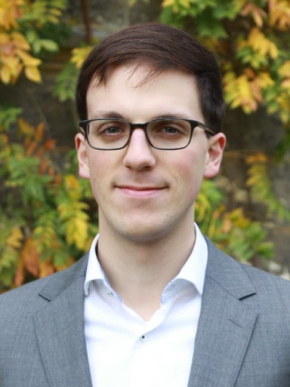Benjamin Schneider begins his two month research stay at CAS
This month, CAS welcomes Benjamin Schneider, our Young CAS PI leading the project "Work and Wellbeing in History," for a two-month research stay. Schneider, a postdoctoral researcher at OsloMet, brings his expertise in historical social science to delve into the Historical Occupational Quality Index (HOQI) and its implications for understanding the long-term dynamics of work quality and its impact on overall wellbeing.


This month, we welcomed our Young CAS PI, Benjamin Schneider, for his two month research stay. Leading the Young CAS project "Work and Wellbeing in History," Benjamin brings a wealth of expertise in historical social science, driven by the central question of how and why human living conditions have evolved over time.
Recognizing the crucial role of work in overall wellbeing, the project seeks to address a notable gap in historical research – the neglect of job quality in accounts of wellbeing. To tackle this challenge, Benjamin and his interdisciplinary team are focusing on the development and enhancement of the Historical Occupational Quality Index (HOQI). Introduced in 2022, the HOQI stands as the pioneering tool for systematically describing, measuring, and comparing the quality of jobs in the past.
The Work and Wellbeing in History project serves as a collaborative platform, bringing together labor historians, economic historians, and labor economists to refine and extend the HOQI while integrating historical and contemporary job quality measurements. Through a systematic approach, Benjamin's team aims to analyze historical workplaces, refine qualitative criteria for assessing work, and improve the weighting system for HOQI components. Additionally, they seek to develop methodologies to capture the quality of travel-to-work, construct measures of career quality in the past, and compare historical and contemporary job quality indices.
By establishing robust approaches to measure job quality in the past, Benjamin and his team aspire to deepen our understanding of the determinants of good work over time. Furthermore, they aim to analyze how work-related wellbeing has contributed to the broader development of quality of life. This interdisciplinary effort holds the promise of illuminating critical insights into the historical evolution of work quality and its profound impact on human wellbeing.
We eagerly anticipate Benjamin's contributions to our research community and look forward to the insights he will uncover during his stay at CAS.
Welcome, Benjamin!